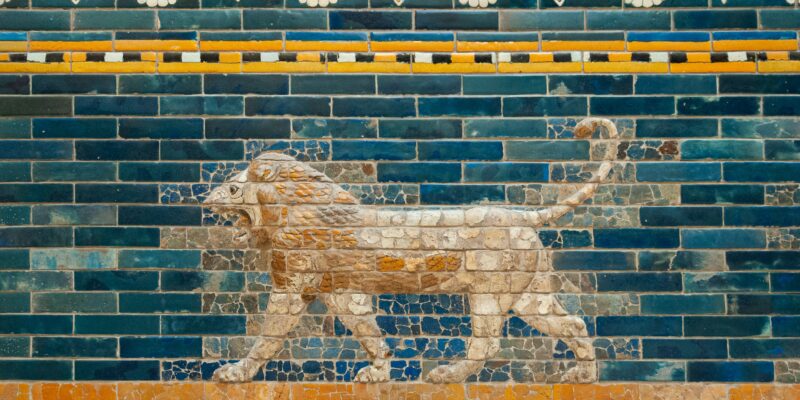The Richest Man of Babylon has been a classic in financial literature for many years. This book review will show you why.
As always, with these book reviews, you should be aware that they are not a final list of all the lessons one can learn from the book.
Instead, I picked out some of the most important ones I came across. But everybody will come across different smaller lessons in their own subjective reading experience.
So consider reading the book yourself as well.
Read also: The Psychology of Money Book Review | 13 Lessons + Quotes
Read also: Secrets Of Six-Figure Women Book Review | 17 Lessons + Quotes
Reading Experience
The Richest Man of Babylon was … ok, I guess.
It didn’t teach me anything overwhelmingly new, but it did teach some very basic financial lessons that justify it being a classic.
The individual stories about different citizens of Babylon were interesting to read as they painted a good picture of what life could have been like in that unique city.
I have to admit the old writing style was a bit exhausting to read. But then again, English isn’t my first language, so that might have made it a bit more difficult.
Lessons
1. Hard work alone won’t make you wealthy; you need a plan
“Who would believe there could be such a difference in results between following a financial plan and just drifting along.”
– George S. Clason (The Richest Man of Babylon)
There are lots of people who work hard in life. They spend many decades doing this hard work, yet they don’t seem to get wealthier.
Their money comes and goes just as quickly.
The universe won’t simply notice you for your hard work and turn you into a millionaire overnight.
Instead, you need a plan that goes beyond working hard to accumulate more money.
Do you have a plan yet, or are you simply working and waiting?
2. Spend less than you earn
“I found the road to wealth when I decided that a part of all I earned was mine to keep. And so will you.”
– George S. Clason (The Richest Man of Babylon)
“A part of all you earn is yours to keep. It should be not less than a tenth no matter how little you earn. It can be as much more as you can afford. Pay yourself first.”
– George S. Clason (The Richest Man of Babylon)
Step one to becoming wealthy is not to spend everything that you earn.
Instead, you need to pay yourself first in the form of saving and investing your money.
Once you get your paycheck, the first thing you should do is transferring a part of the money to a separate bank account that is not to be touched under any circumstances.
Then make do with the rest of your income.
Think about it this way: If you’d suddenly lost your job (which can happen to everyone) and found a new job that pays less, you would also manage to finance your life based on that smaller income, am I right?
From now on, you are simply going to pretend you earn only the amount left after paying your savings.
3. You have to let your money work for you
“If you would become wealthy, then what you save must earn, and its children must earn, that all may help to give to you the abundance you crave.”
– George S. Clason (The Richest Man of Babylon)
Now that your savings are slowly but surely growing with each paycheck, you have to take another step.
You have to invest that money in some way to make it earn even more money for you.
One book that helps you get started with investments is Money: Master the Game by Tony Robbins.
You can find it in my Reading List for Personal Growth.
4. Always be ready for an opportunity to arise
“Opportunity is a haughty goddess who wastes no time with those who are unprepared.”
– George S. Clason (The Richest Man of Babylon)
“The truth is this: Good luck can be enticed by accepting opportunity.”
– George S. Clason (The Richest Man of Babylon)
“Men of Action are Favored by the goddess of Good Luck.”
– George S. Clason (The Richest Man of Babylon)
Despite what most people believe, there are plenty of opportunities for wealth in most of our lives.
Sadly, only a few people recognize them as such, and even fewer take advantage of them when they present themselves.
You should always keep an eye out for opportunities that present themselves.
Having a solid amount of savings will help you to take advantage of them.
5. Practise seeing plans through till the end
“If I set for myself a task, be it ever so trifling, I shall see it through. How else shall I have confidence in myself to do important things?”
– George S. Clason (The Richest Man of Babylon)
“When I set a task for myself, I complete it. Therefore, I am careful not to start difficult and impractical tasks, because I love leisure.”
– George S. Clason (The Richest Man of Babylon)
Nobody succeeds in life by being lazy and falling prey to the shiny object syndrome.
You have to be disciplined enough to pursue one goal until you achieved it, or all your effort will be wasted.
Self-discipline is a habit. The more you are disciplined, the easier it is to be disciplined the next time.
And soon, you will see yourself as a disciplined person that follows through on their plans.
Reaching your financial goals is one of the most important plans you are ever going to make, and it is of utmost importance that you see it through.
So make sure not to plan too big in the beginning.
You should rather save 5% of your income every month and keep up with it, compared to planning to save 30% and falling short after only two months.
Consistency is key.
6. Don’t postpone living a good life in favor of saving
“Enjoy life while you are here. Do not overstrain or try to save too much. If one-tenth of all you earn is as much as you can comfortably keep, be content to keep this portion. Live otherwise according to your income and let not yourself get niggardly and afraid to spend. Life is good and life is rich with things worthwhile and things to enjoy.”
– George S. Clason (The Richest Man of Babylon)
Saving for the goal of a luxurious and financially free future is a noble pursuit.
However, you shouldn’t take it too far and let it get in the way of you enjoying the present.
You never know what the future beholds, so you should make the most out of the life you have right now.
Allow yourself to go on holiday once in a while. Maybe treat yourself with a massage.
Don’t do anything that would blow your savings account to pieces. But do allow yourself some luxuries.
That way, you won’t feel resentful towards your financial plan, and it will be easier to be consistent.
Also, a happier you is a more motivated and creative you, which can open new opportunities.
7. The greatest success can come from the simplest plan
“Deride not what I say because of its simplicity. Truth is always simple.”
– George S. Clason (The Richest Man of Babylon)
Don’t dismiss simple plans as too good to be true.
If someone tries to tell you, you can become a billionaire overnight, then yes, that is most likely too good to be true.
However, the simple plan of saving 10% of your income and investing it over decades until it makes you wealthy relies on the powers of compounding, which are very much real.
We often don’t take the first step because we overcomplicate things.
Allow yourself to keep it simple.
8. Only follow the advice of people who walk the talk
“Consult with wise men. Secure the advice of those experienced in the profitable handling of gold. Let their wisdom protect thy treasure from unsafe investments.”
– George S. Clason (The Richest Man of Babylon)
If you are looking for financial advice, you will find an endless amount of people assuring you that they know best.
Many of these people are so convinced by their advice that we easily want to believe them too.
However, if you look at their finances, the quality of their advice quickly becomes questionable.
You should never take financial advice from someone who doesn’t have the financial success you are aiming for.
After all, you wouldn’t ask a mechanic for health advice or a doctor about tips to fix your car.
Only follow the advice of experts who walk the talk.
9. Prepare early for retirement
“Provide in advance for the needs of thy growing age and the protection of thy family.”
– George S. Clason (The Richest Man of Babylon)
While retirement may seem like a distant spot on the horizon for young people, it can approach much faster than we’d expect.
The benefit of preparing early for retirement is a stark decrease in stress and insecurity.
Also, as pessimistic as it sounds, you should at least consider the possibility that you become unable to work much sooner in your life due to an unfortunate accident.
If you’ve prepared nothing until then, you are going to have an even harder time making ends meet.
So look ahead and set up a simple savings plan that you can follow without much effort, and that’ll guarantee a financially stable retirement.
10. You only need to invest small amounts regularly; compounding will turn it into wealth
“The more gold I accumulate, the more readily it comes to me and in increased quantities.”
– George S. Clason (The Richest Man of Babylon)
It’s easy to think that only big investments will give you a big return.
We fall prey to that belief because we think linearly.
We have a hard time thinking exponentially, but that’s exactly how our investments will develop with the power of compounding.
As long as you start early, stay consistent and reinvest your return, you only have to put in a small portion of your income to achieve extraordinary wealth.
There has been a janitor who became a multi-millionaire by the time of his death through his investments.
11. Help yourself first
“If you desire to help thy friend, do so in a way that will not bring thy friend’s burdens upon thyself.”
– George S. Clason (The Richest Man of Babylon)
There is no glory in playing the martyr.
The worse off you are in life, the less you can help others.
Instead of trying to help all your friends and family members immediately, sometimes it can be much more effective to help yourself first to lift them more easily from your higher level.
Think about what they teach you in the airplane safety lessons. You should always put on your oxygen mask first before helping others.
There is a reason millions of people are taught that lesson every day. It’s time we apply this lesson in our daily life as well.
What was your favorite lesson from ancient Babylon?
Did you already read the book? What did you think?
I’m curious to hear from you!
Sophie








